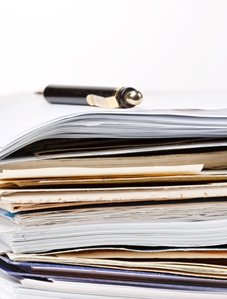
Writing a Will is one of the most important parts of estate planning. This key document is used to carry out your last wishes regarding how your assets should be distributed upon your death.
Preparing a Will may seem unpleasant, but it is essential to ensuring you leave adequate provisions for your loved ones should the worst happen. Yet, a 2015 study compiled by the University of Queensland and other institutions showed just 59 per cent of people have a Will.
Failing to write a Will could cause your estate to fall under intestacy rules, which means the distribution of your assets is executed according to a fixed statutory order. In other words, you won't have a say in who receives what from your estate.
The net worth of the average household was $809,000 in 2013-14, according to the latest Australian Bureau of Statistics data.
To get you started, here are some of the main steps you can expect to encounter when preparing a Will. Nevertheless, you should consult with lawyers and accountants experienced in estate planning matters before embarking on this process.
1. Inventory and valuate your assets
The net worth of the average household was $809,000 in 2013-14, according to the latest Australian Bureau of Statistics data. However, calculating what assets you will leave behind and how much they are worth is often a complex matter.
Your Will should list all your possessions, investments and other valued items, as well as the beneficiary who you would like to receive them. Real estate, savings, shares, jewellery and vehicles are commonly included, but it's important to mention everything that you solely own.
The process of creating an inventory and having items valued can be a considerable undertaking for individuals with large estates, but qualified accountants in Geelong, such as WMC Accounting, can provide these services.
2. Choose your executors
Executors have a wide range of duties related to the management and distribution of an estate when someone dies. First, they must obtain court approval through grants of administration to have the legal authority to handle your estate.

Executors are then tasked with collecting and transferring the testator's assets; paying off any debts, taxes and other liabilities; dealing with inheritance disputes; and distributing the estate to beneficiaries.
Most people choose two executors, and you can opt for a close family member or friend. However, you may also want to appoint a professional accountant or lawyer who is familiar with succession law to ensure the process runs as smoothly as possible.
3. Ensure the Will is valid
Writing a valid Will is crucial if you want to avoid your estate falling under the aforementioned intestacy laws.
An invalid Will could also lead to inheritance disputes between loved ones, which may lower the value of the estate through legal fees and cause a breakdown in family relationships.
Preparing for the future can seem daunting, but with the right help, you can ensure your loved ones are financially secure when you pass away.
In Victoria, you must sign a Will in front of two or more independent witnesses – who are also required to sign the document – to ensure the validity of a Will. You also need testamentary capacity, which means you have no disorders that could affect your cognitive ability to make important decisions.
Do you need help with estate planning?
These are just three steps in the Will-writing process, and there are a number of other considerations to make when estate planning.
Do you have powers of attorney? Are you leaving behind dependents who require special care? Should you set up testamentary trusts? These are all questions that can be answered through effective estate planning.
Preparing for the future can seem daunting, but with the right help, you can ensure your loved ones are financially secure when you pass away.
For more information on our estate planning services, please speak to a member of our team.



